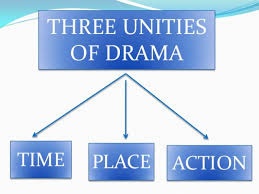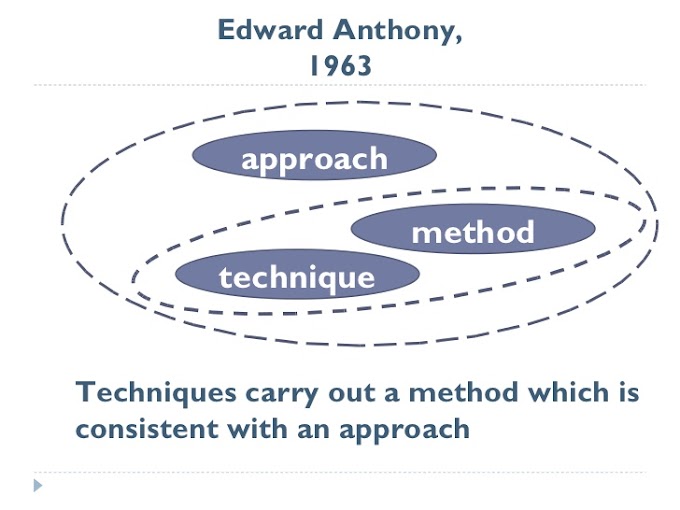Dramatic unities are the principles of a dramatic structure relating action, time and place. The unity of action demands that the action of a tragedy must be a complete whole. In an action there may be a number of incidents and events but together, they are must contribute one, and only one action. The unity of the action arises from the fact that every event has a logical connection with the rest of the action and none of them is irrelevant. The unity of time demons that the action of a tragedy should remain confind within 24 hours. The unity of Place demands that the action of a drama should occur in a single place. These three unities have, since the Renaissance, been considered to be necessary to create credibility in a play. Doing the presudo classical era the unities were made into rigid rules and their observance was considered essential.
The unity is an organic unity , which gives form and meaning of tragedy. It makes the plot concrete and significant. It has a beginning, a middle and an end. There are a number of incidents, events and situations, but they are so united that they complete whole. These various events are united in two ways. First, they connected with each other by the law of necessity and probability. Secondly, they are united by the fact that they all move forward towards a common goal. The beginning leads logically and inevitably to the end, without any unnecessary digressions and episodes coming in between.
Aristotle rules out plurality of action. According to him, there should be one action or plot, and not two actions. Thus, he is against the introduction of sub-plot. Similarly, he is against the double ending i.e. tragic end for some of the characters and a happy end for the others---
“Plurality of action and such double ends distract attention and weaken the tragic effect”
They defeat the very purpose of tragedy, which is to arouse the emotions of pity and fear. Aristotle thus rules out Tragi-comedy and the introduction of comic relief.
Aristotle has stresses only the unity of action, but his name is associated with the other two unities – the unity of time and the unity of place. About time, Aristotle said , while comparing the magnitude of the epic and tragedy that the epic has “no fixed limit of time where as Tragedy endeavours to keep as far as possible within a single circuit of the sun, or something near that.” We may assume that by a single circuit of the sun Aristotle intended twenty four hours and not twelve.
The unity of place Aristotle does not even mention once. While comparing the structure of the Epic with that of Tragedy Aristotle remarks. “In a play one can not represent an action with a number of parts going on simultaneously; one is limited to the part on the stage and connected with the actors.”
The Italian Renaissance critics interpreted the above remark as Aristotle's insistence on the unity of place, limiting the scene to a single place or city. In fact, Aristotle was simply mentioning the general practice of Greek dramatists who mostly observed the unity of place because of the presence of the Chorus, which are characters in the play, and could never leave the stage.
Thus the Unity of Action, which Aristotle rightly emphasized , is the higher and controlling law of the drama. Though the three unities are called Aristotlian unities, there is no sanction for such an interpretation in Aristotle, who never connected the unities of time and place with imitation.





0 Comments